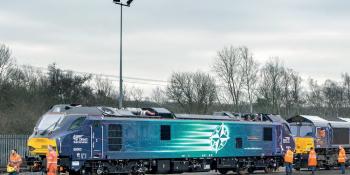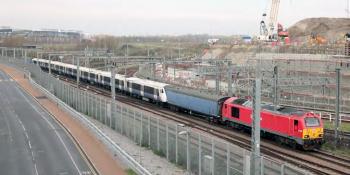A REVISED business case for Crossrail 2 was due to be submitted to the Government in June, but was set to incorporate a revised timeline for delivery in the light of funding challenges following the cost and schedule overruns on Crossrail 1.
Addressing the London Assembly Budget and Performance Committee on 21 May, Transport for London’s Director of City Planning Alex Williams said the strategic outline business case, the fifth for the project, will then go to the Department for Transport board, with TfL hoping for DfT to take a formal position by September.
Mr Williams explained TfL was close to confirming arrangements for Crossrail 2 before news broke of the delay and funding overrun to Crossrail 1. In December TfL subsequently confirmed a revised funding package to enable completion of work on the Elizabeth Line, using some of the money earmarked for Crossrail 2, including from the Business Rate Supplement and Mayoral Community Infrastructure Levy. For Crossrail 2, the Government has stated London must pay half of the cost of the scheme up front, although Mr Williams said this point would be discussed with Government.
The new north east to south west line had been targeted to open in the early 2030s, concurrent with the arrival of HS2 Phase 2b services at Euston. The line’s cost is estimated at over £30 billion. Earlier this year London’s Deputy Mayor for Transport Heidi Alexander confirmed to the Budget and Performance Committee that a hybrid bill for Crossrail 2 is unlikely to be submitted this year.
Mr Williams said TfL would discuss with the Mayor and the Department for Transport how the cost of the scheme could be reduced.
Asked what finance mechanisms TfL is investigating to fund Crossrail 2, Mr Williams told the committee options being investigated by the Crossrail 2 team included a business rate supplement, council tax, land value capture and sale and leaseback. At present TfL has no funding certainty beyond 2021, and Mr Williams said this would be a key ask of the organisation at the Comprehensive Spending Review later this year.
The lack of funding certainty going forward has already forced TfL to abandon some planned capital spending, including cancelling the procurement of a new signalling system for the Piccadilly Line. TfL has used the sale and leaseback deal for the Elizabeth Line Class 345 fleet to fund an order for new trains for the Piccadilly Line, with a contract now awarded to Siemens. David Hughes, TfL’s Investment Delivery Planning Director, told the committee the replacement fleet was needed more urgently as the current fleet is approaching life expiry, whereas there wasn’t the same imperative to replace the line’s signalling assets. However, he said, the full capacity benefit could only be gained from a combination of new trains and signalling, and therefore the resignalling was ‘our first priority in the CSR (comprehensive spending review) and frankly any other discussion we are having at the moment’.




